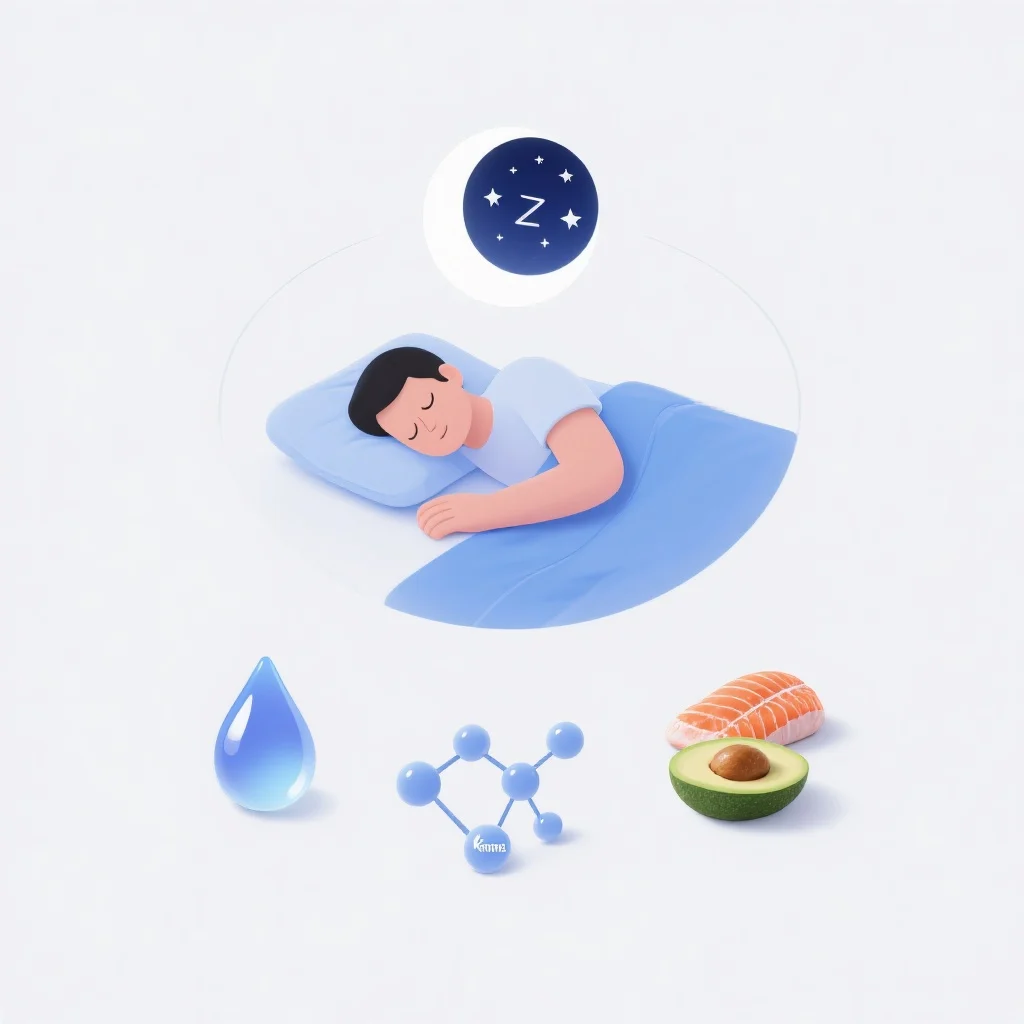Introduction
Sleep is a cornerstone of health, affecting everything from mood and metabolism to immune function and cognitive performance. Many people report changes in their sleep patterns after starting a ketogenic diet, with some experiencing deeper, more restful sleep. But what does the science say about ketosis and sleep quality? Let’s explore the mechanisms, benefits, and supporting research.
The Link Between Ketosis and Sleep
1. Stabilized Blood Sugar and Fewer Nighttime Awakenings
One of the hallmarks of the ketogenic diet is stable blood sugar levels. Fluctuations in blood glucose can cause nighttime awakenings and disrupt sleep cycles. By reducing carbohydrate intake and relying on fat and ketones for energy, the body avoids the blood sugar spikes and crashes that can fragment sleep.
A study published in the journal Nutrients (2019) found that adults on a ketogenic diet experienced fewer nighttime awakenings and improved sleep efficiency compared to those on a standard diet (Kreutzer et al., 2019).
2. Increased Production of Adenosine
Adenosine is a neurotransmitter that promotes sleep and relaxation. Ketosis has been shown to increase adenosine levels in the brain, which may help with sleep onset and depth. Research in Frontiers in Neurology (2014) suggests that the ketogenic diet enhances adenosine signaling, contributing to its anticonvulsant and sleep-promoting effects (Masino & Rho, 2014).
3. Modulation of GABA and Glutamate
The ketogenic diet influences the balance of neurotransmitters, particularly GABA (gamma-aminobutyric acid) and glutamate. GABA is calming and promotes sleep, while glutamate is excitatory. Ketosis increases GABAergic activity, which may help reduce anxiety and improve sleep quality. A review in Epilepsy Research (2013) highlights the role of the ketogenic diet in enhancing GABA synthesis (Yudkoff et al., 2013).
4. Reduction in Sleep Apnea Symptoms
Obesity and metabolic syndrome are risk factors for obstructive sleep apnea, a condition that disrupts breathing during sleep. The ketogenic diet’s effectiveness for weight loss and reducing inflammation may help alleviate sleep apnea symptoms. A clinical trial in Obesity Research (2004) found that a low-carbohydrate, ketogenic diet led to significant weight loss and improvement in sleep apnea severity (Volek et al., 2004).
5. Improved REM and Deep Sleep
Some studies suggest that ketosis may increase the proportion of restorative deep sleep (slow-wave sleep) and REM sleep. In a study published in Sleep (2007), children with epilepsy on a ketogenic diet showed increased REM sleep and improved sleep architecture (Hallböök et al., 2007).
Practical Tips for Better Sleep on Keto
- Avoid caffeine late in the day.
- Maintain a consistent sleep schedule.
- Ensure adequate intake of magnesium and electrolytes.
- Eat your last meal at least 2–3 hours before bedtime.
- Stay hydrated, but avoid excessive fluids right before bed.
Conclusion
Emerging research suggests that ketosis can support better sleep through stabilized blood sugar, increased adenosine, enhanced GABA activity, weight loss, and improved sleep architecture. While individual experiences may vary, the ketogenic diet offers promising benefits for those struggling with sleep issues. As always, consult with a healthcare provider before making significant dietary changes, especially if you have underlying health conditions.
References
- Kreutzer, C., et al. (2019). Effects of a Ketogenic Diet on Sleep Quality and Sleep Architecture in Adults. Nutrients, 11(10), 2306. Link
- Masino, S. A., & Rho, J. M. (2014). Mechanisms of Ketogenic Diet Action. Frontiers in Neurology, 5, 185. Link
- Yudkoff, M., et al. (2013). Ketosis and Brain Handling of Glutamate, Glutamine, and GABA. Epilepsy Research, 100(3), 276-282. Link
- Volek, J. S., et al. (2004). Body composition and hormonal responses to a carbohydrate-restricted diet. Obesity Research, 12(7), 1152-1160. Link
- Hallböök, T., et al. (2007). Sleep patterns in children on the ketogenic diet: A prospective study. Sleep, 30(7), 923-927. Link




